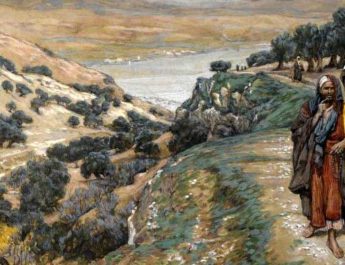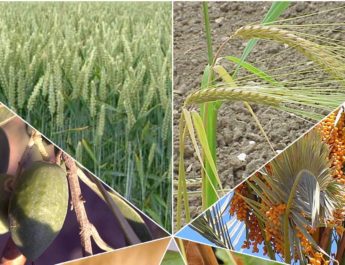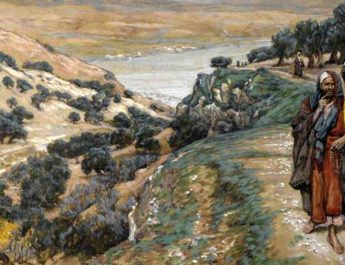Hosea 11:1-4
Trinity Sunday – A Women’s Lectionary
1 When IsraelA was a child,B I lovedC him,
A “Israel” = Yisrael. From sarah (to persist, exert oneself, contend, persevere, wrestle, prevail) + el (God or god). This is God strives or one who strives with God; new name for Jacob and for his offspring. This refers to the people and to the land.
B “child” = naar. May be from na’ar (to shake, toss up and down, tumble around). This is a child or a servant. It is a child in their active years so they could be aged anywhere from infancy to adolescence.
C “loved” = aheb. This is to love, beloved, friend. It is to have affection for sexually or otherwise.
and out of EgyptD I calledE my son.F
2 The more I called them,
the more they wentG from me;H
D “Egypt” = Mitsrayim. Perhaps from matsor (besieged or fortified place, bulwark, entrenchment; something hemmed in; a siege or distress or fastness); from tsur (to confine, besiege, to cramp). This is Egypt.
E “called” = qara. This is to call or call out – to call someone by name. Also used more broadly for calling forth.
F “son” = ben. From banah (to build or obtain children). This is son, age, child. It is son in a literal or figurative sense.
G “went” = halak. This is go, come, walk. It is walk literally and figuratively and includes people and animals. It can be used figuratively for one’s moral life – how we walk according to God’s way or against it. It can also refer to the walk of life as in the course one’s life takes, the choices we make, etc.
H “from me” = paneh. Literally “from their faces.” From panah (to turn, face, appear). This is face in a literal or figurative sense. It could be face, presence, anger, respect. It can also be used of God to indicate divine favor or presence.
they kept sacrificingI to the Baals,J
and offering incenseK to idols.L
3 Yet it was I who taught EphraimM to walk,N
I “sacrificing” = zabach. This is slaughtering an animal, generally for the purpose of sacrifice. It can mean kill or offer.
J “Baals” = Ba’al. From the same as ba’al (lord, owner, ally, or archer); from ba’al (to marry, have dominion, be master). This is Baal, literally “lord,” a Phoenician god.
K “offering incense” = qatar. Perhaps from qetoreth (smoke, incense, the scent of the sacrifice as it burned); from the same as qitor (thick smoke, vapor). This is to make an offering, particular one of burned incense. It focuses on the fragrance made from the sacrificial fire. This is generally used to refer to worship.
L “idols” = pasil. From pasal (to hew, carve; used for wood or stone). This is an idol or other image.
M “Ephraim” = Ephrayim. From the same as epher (ashes or dust – properly something strewn) OR from parah (to grow, increase, be fruitful in a literal or figurative sense). This is Ephraim, one of Joseph’s sons, his descendants, and their land.
N “taught…to walk” = ragal. From regel (foot, endurance, or journey; a foot as the means of walking and so it implies a step or a greater journey; can euphemistically mean private parts). This is to walk along, spy out, slander.
I tookO them up in my arms;P
but they did not knowQ that I healedR them.
O “took” = laqach. This is to take, accept, carry away, receive. It can also have the sense of take a wife or take in marriage.
P “arms” = zeroa. Perhaps from zara (to sow, scatter seed, conceive). This is the arm, shoulder, or foreleg of an animal. It is figuratively used for power, force, might, or help.
Q “know” = yada. This is to know, acknowledge, advise, answer, be aware, be acquainted with. Properly, this is to figure something out by seeing. It includes ideas of observation, recognition, and care about something. It can be used causatively for instruction, designation, and punishment.
R “healed” = rapha. Properly, this is to repair by stitching – figuratively this means to heal or cure. It can also mean to make whole.
4 I ledS them with cordsT of humanU kindness,
with bandsV of love.W
S “led” = mashak. This is to draw, drag, or pull. It can mean sow, march, remove, draw along, continue, extend, or prolong.
T “cords” = chebel. From chabal (to bind, pledge, or wind tight; figuratively, can refer to perverting or destroying something; can also be used of writhing in pain, particularly in reference to childbirth). This is a band, rope, measuring line, noose. It can be a company, territory, or country. It can also refer to a throe of labor or ruin.
U “human” = adam. Perhaps from adam (to be red, make ruddy); related to adamah (ground, dirt, earth). This is man, humankind, also Adam’s name. It refers to a human individual or humanity.
V “bands” = abot. From abat (to weave, wind, or interlace). This is a cord, string, band, wreath, branch, or foliage.
W “love” = ahabah. Related to “loved” in v1. From aheb (see note C above). This is love or lovingly.
I was to them like those
who liftX infants to their cheeks.Y
I bent downZ to them and fedAA them.
X “lift” = rum. This is to rise or raise, to be high literally or figuratively. So it can also mean to exalt or extol.
Y “infants to their cheeks” = ol + al + lechi. Literally “those who take the yoke from their jaws.” Ol is from alal (to insert). This is a yoke that is borne on the neck, whether a literal yoke or used of a figurative one. It is spelled very similarly to ul, which means a nursing child. Lechi is a cheek or jaw bone.
Z “bent down” = at. 7x in OT. This is softly or gently. It can also refer to a charmer because their spells are whispered.
AA “fed” = akal. This is to eat, devour, burn up, or otherwise consume. It can be eating in a literal or figurative sense.
Image credit: “A fountain celebrating a family in the city center of Kikinda” – a Cultural Heritage Site of Serbia. Photo by V.djordjevic, 2016.




